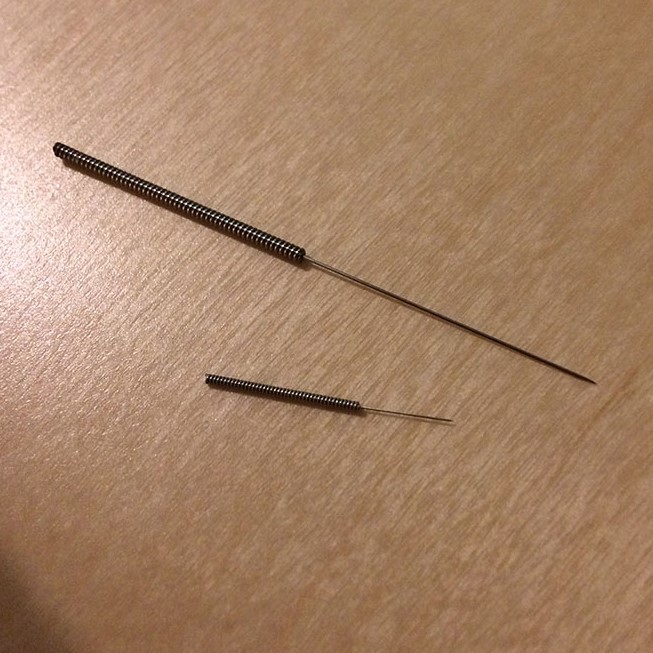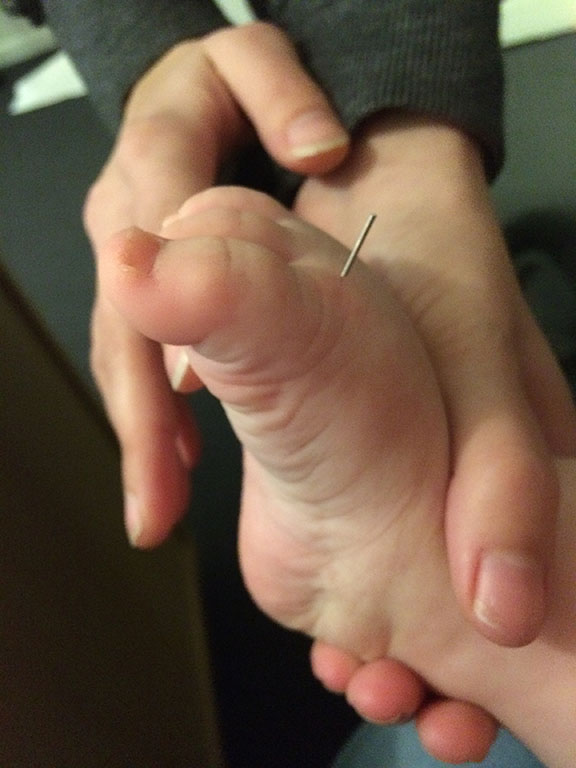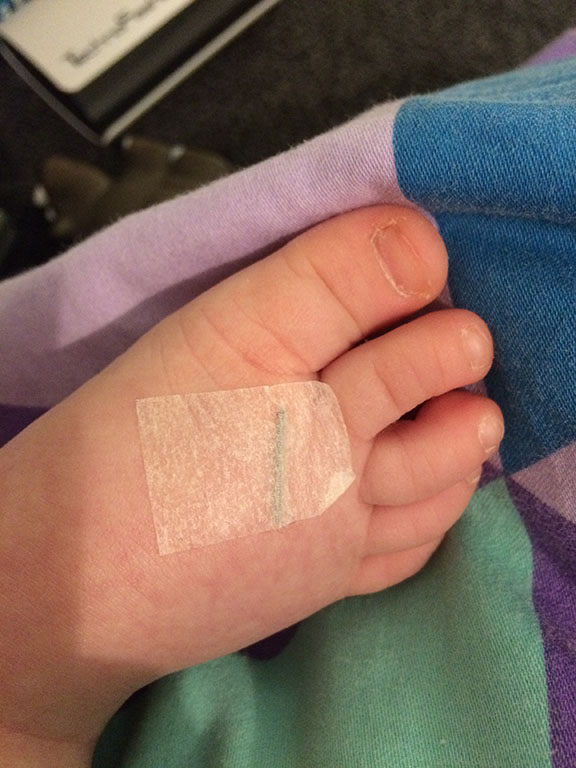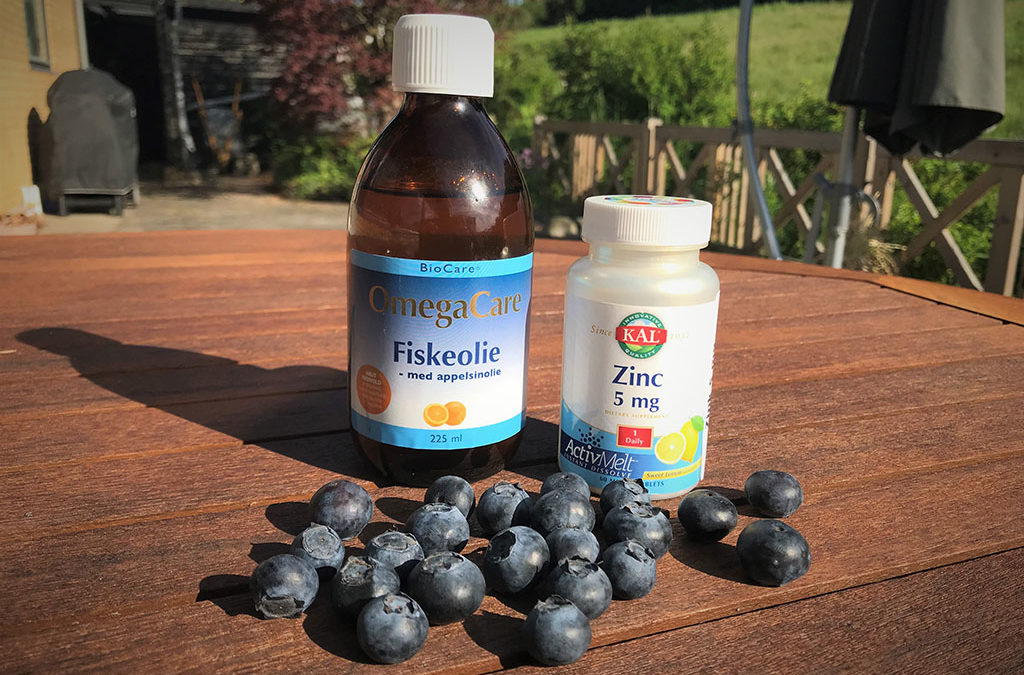Visual development
Alternative Treatment and Health Supplements
In this blog post I will tell you a little more about both alternative treatment forms, which we used to help Alma, as well as health supplements that have become a part of her day-to-day life.
Alternative treatment
There wasn’t a second of doubt in our minds that eye surgery was necessary for Alma in terms of removing her congenital cataracts in the hope of her regaining sight in her bad eye. But we were also prepared to try alternative treatments if these could help assist her in any way. After some research and having spoken with therapists, we came to the conclusion that we would try acupuncture (performed by a specialist in the treatment of babies).
The doctors’ opinion
The doctors at the hospital did not think it would make a positive difference. But more importantly, they did not think it would make a negative difference either.

Experience with Acupuncture
We chose a course of acupuncture that involved going to Copenhagen with Alma every day for 10 days in a row. Every day she would have two treatments involving having needles in both hands and feet. The first and last treatments were also in the forehead.
Putting needles in a nine-month-old baby
I was excited to see how Alma would react to the needles. She cried a little at a single needle in her forehead, but all the other needles went in without any problems or resistance. They were somewhat thinner than regular needles, as shown in the picture. They were placed at an angle, so they were flush with her skin and did not stick out into the air. A plaster kept them in place. The top picture shows Alma sitting and playing with needles in her hands and feet, which are covered in a plaster.
Health supplements that support vision development
After speaking with a phytotherapist/herbal therapist, we have made sure to include the following health supplements at the breakfast table a couple of mornings a week, as well as taking a daily multivitamin pill.



The effect of acupuncture
We are unsure as to whether there has been a positive effect as a result of the acupuncture treatment, nor will we ever know. There is no doubt that the main reason for her positive vision development progress lies in the use of adhesive eye patches. But it by no means hurts to explore this as an option, when looking back at how her vision has evolved. And yes … it was an additional expense even after the subsidised price, but it was worth every penny. It gave peace of mind to know that we had at least tried to do the best for Alma.
Fish oil with high amounts of DHA
Alma takes liquid fish oil called Omega Care a few times a week. It is rich in DHA, which contributes to the upkeep of normal vision and normal brain function. She takes it directly from a teaspoon. It tastes of orange, so it goes down without a problem. However, it can also be ingested in smoothies, porridge etc., which help to camouflage it. 😉
Zinc
In addition, she takes Zinc 5 mg from KAL. KAL has created an ActivMelt tablet, which dissolves when you put it on your tongue. The tablet tastes of lemon and is perfect for people who don’t enjoy swallowing pills. Alma has no problem taking the tablet.
Blueberries
Last but not least, ever since Alma had her eye surgery, we have had blueberries on the menu on a weekly basis. Blueberries are used to treat a variety of eye problems, for example, in relation to glaucoma. Fortunately, Alma has not developed glaucoma after her eye surgery, but the blueberries are meant to support her vision in these critical years following the surgery.
Whether the amount makes a difference for Alma is impossible to know. But she loves them, and it’s not the worst snack to feed her. 🙂
When blueberries are not blueberries
I have since found out that there are several different types of blueberries, and that more often than not the blueberries in the refrigerators in shops are actually bilberries. Classic blueberries are the ones you can find in, for example, the Swedish woodland, which are blue inside, and which give off colour that is good for the eyes. Bilberries are much larger and lighter inside. Bilberries have no positive impact on eyesight.
So, as a result of simply not knowing, we have been buying bilberries for two years, which have had no impact on visual development. Since it is impossible to forage for real blueberries in their natural form, we have now started buying the frozen ones, which, in my experience, are real blueberries. I can’t say Alma complains about a blueberry smoothie every now and then. 🙂
What about you?
Do you use special health supplements for your child? Or do you have any experience with alternative treatments to support your child’s vision development? Feel free to send us an e-mail – we would love to hear more. 🙂
Follow us on Facebook or subscribe to our newsletter, if you want to be kept up to date when a new post has been published. 🙂

